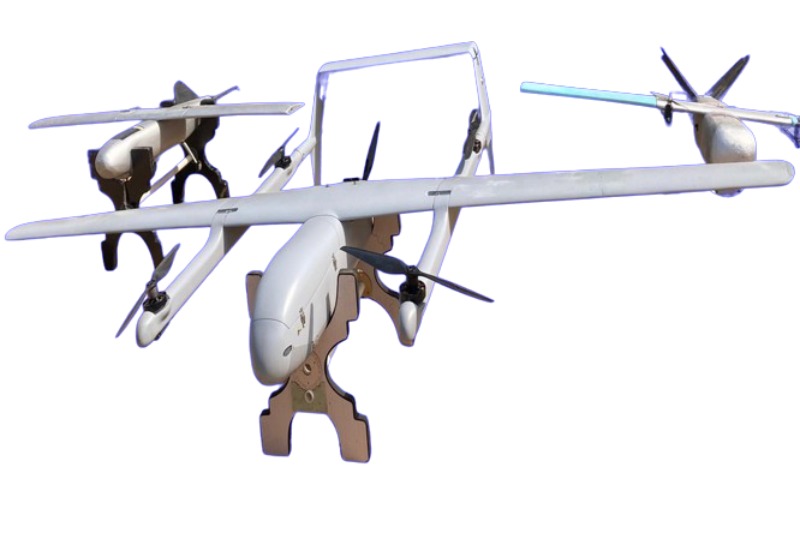
Startup Highlight: SpaceTIS is Providing Advanced Space Technologies In The UAE
- Business
- March 4, 2024
SpaceTIS, a spacetech business, opened its first office in the USA in 2017 and inaugurated its branch in the United Arab Emirates in 2022. However, the company’s journey began earlier. Saudi Arabia, Nigeria, and Luxembourg have also been established as its bases since then. And while the startup’s work in each of these places has mostly concentrated on creating innovative and economical space and terrestrial technologies, SpaceTIS-UAE has a very specific objective: creating a cutting-edge native unmanned aerial vehicle (UAV) or drone technology.
“The key UAV challenge in the industry that inspired this product development is the lack of versatile and high-endurance platforms to meet the old as well as emerging needs of many drone clients,” explains Hadarou Sare, founder and CEO of SpaceTIS-UAE. “In fact, SpaceTIS-UAE has identified two main problems with the existing UAVs in the market: lack of versatility, and lack of high-endurance. SpaceTIS-UAE therefore proposes to develop an innovative UAV that meets the versatility issues and the lack of endurance issues. We do this by implementing the following traits in our innovative UAV technology: modular and highly adaptable swappable components to meet the versatility requirements, and an inflight battery charging system and fuel optimization algorithms to prolong flight time and expand the mission envelope in order to meet the endurance requirements.”
Therefore, it could be important to comprehend the consequences of the present technology’s shortcomings before attempting to comprehend how SpaceTIS-UAE’s technology functions. First of all, UAVs have frequently been limited by their battery life, which has an impact on their endurance and range. Applications that need to conduct long-distance or long-duration flights may find this to be a significant barrier. Maintaining dependable communication between the UAV and the ground control station is another problem that UAVs must deal with. Signal interferences and connection loss can make an operation completely ineffective. And with its own UAV technology, SpaceTIS-UAE hopes to overcome these obstacles as well as others.
“In terms of technology development, we’ve completed the design and testing of each component of the technology, and we have also completed manufacturing a prototype of the technology, with patents already filed,” Sare explains. “We think that the UAE market does not currently have technology like ours. Also, our goods are less expensive than the UAVs that are currently on the market. As a result, the product represents a significant advancement in the UAV and drone industries as the first drone with more than 75% indigenous labor. Additionally, our UAV has a lightweight aluminum airframe, a 3.5-meter wingspan, a minimum endurance period of three hours, long-range (more than 50 km) communication, and a mobile base station for control.”
Therefore, sales of two main UAV technologies—a multi-rotor UAV and a fixed-wing UAV—are SpaceTIS-UAE’s primary source of income. “Our revenue model also involves selling components we develop as part of our innovative UAV, namely, hybrid propulsion, inflight battery charging system, fuel optimization algorithm, and highly adaptable and swappable UAV components,” Sare explains. “And finally, we also offer auto starting systems, training and human capacity development, and onboard power generation systems. In the long term, SpaceTIS will be developing multiple other space technologies and components in the UAE.” It should be noted that the UAE Space Agency, the leading organization in charge of directing the country’s space industry and expeditions, is supporting SpaceTIS-UAE in this way.
Now, with the expertise of working and collaborating with well-known international companies in the spacetech space, SpaceTIS-UAE is able to make an effect inside the UAE market. In fact, it has collaborated with other organizations throughout the years, including the US Department of Defense, the Florida Space Institute, the King AbdulAziz City for Science and Technology, the Nigerian Space Agency, and the South African Space Agency. Now that the MBRIF Innovation Accelerator Program is on board, Sare and his group are hopeful that their objectives may be successfully attained. “We chose the MBRIF program due to its alignment with our vision for pioneering UAV technology,” Sare explains. “The program offers invaluable support and opportunities for growth, making it an ideal fit for SpaceTIS-UAE’s aspirations!”